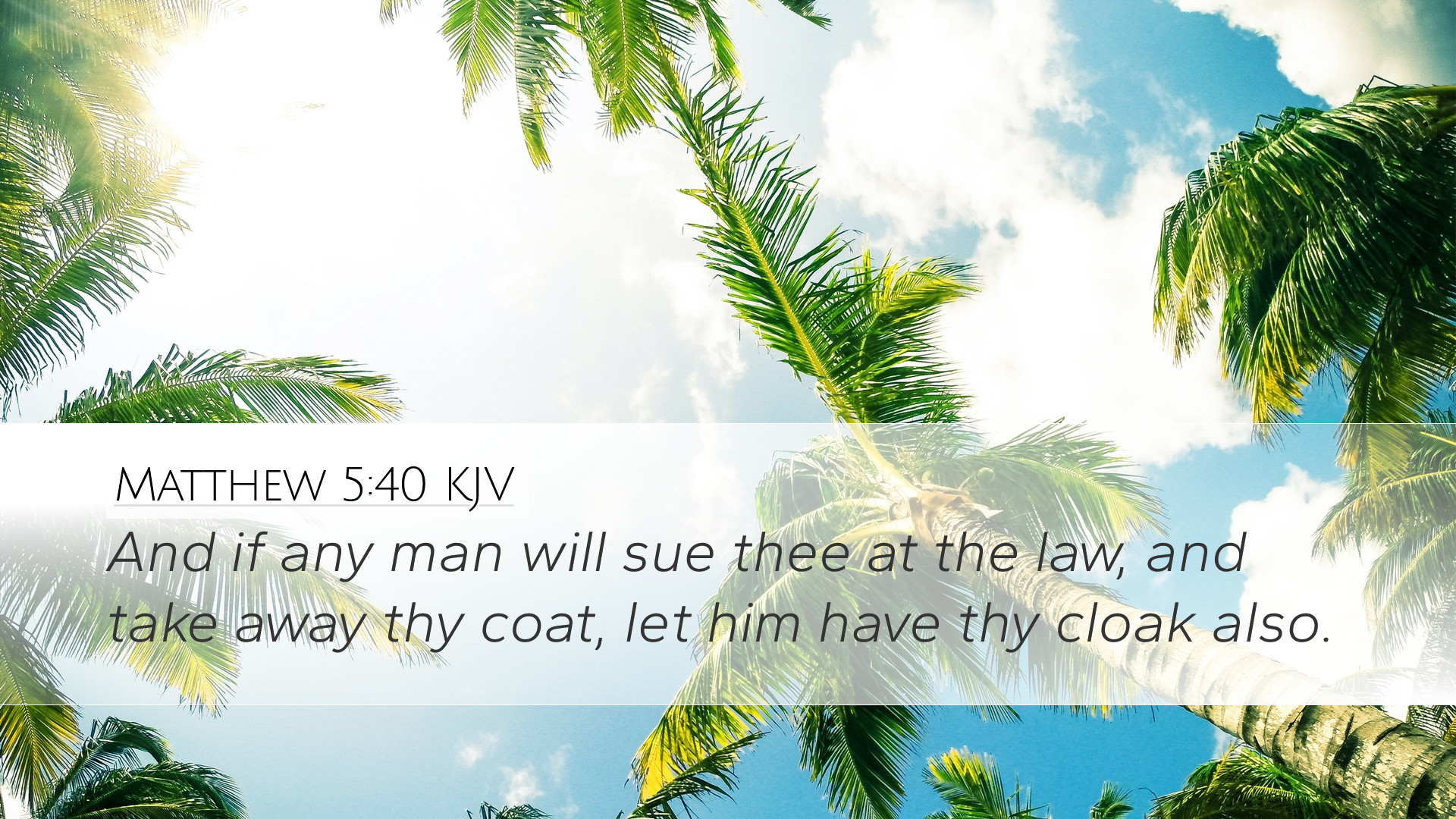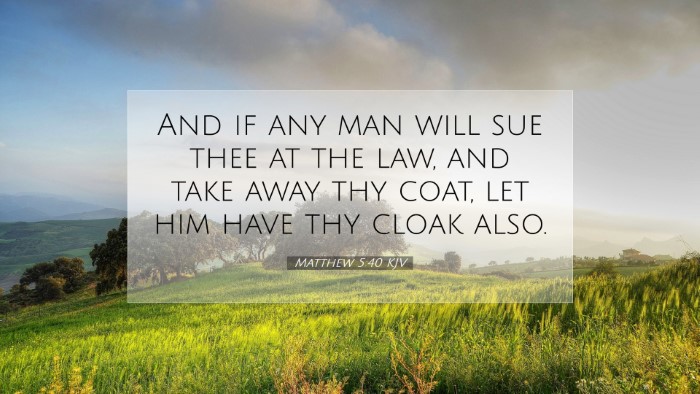Matthew 5:40 - Commentary and Insights
Verse (KJV): "And if any man will sue thee at the law, and take away thy coat, let him have thy cloak also."
This verse is part of the Sermon on the Mount, where Jesus provides profound moral teaching that challenges conventional responses to conflict and injustice.
Contextual Understanding
The surrounding verses emphasize a radical approach to personal offenses. Jesus invites His followers to respond to wrongs not with retaliation but with grace. This teaching is set against the backdrop of the Old Testament laws, which provided for justice but often led to a legalistic approach to disputes.
Key Themes in Matthew 5:40
- Radical Generosity: The principles of generosity and grace are central to this teaching. Jesus encourages an attitude where one's dignity is not tightly woven with material possessions.
- Trusting God in Conflict: Instead of fighting for what is legally ours, we are encouraged to trust God's provision and justice.
- Grace Over Law: Jesus contrasts the law's demands with the higher call to love and grace, illustrating that true righteousness exceeds mere legal compliance.
Commentary Insights
Matthew Henry: Henry elucidates that this command counters the vengeful spirit inherent in humanity. He notes that allowing others to take too much reflects deeper principles of love and humility. By willingly giving more than what is demanded, believers demonstrate a form of self-sacrifice that mirrors Christ's own.
Albert Barnes: Barnes emphasizes the extravagant nature of Jesus' instruction. He notes that it is not merely about giving away possessions but rather about cultivating a heart of forgiveness and generosity. This act of giving one's cloak signifies a willingness to endure loss for the sake of peace and reconciliation.
Adam Clarke: Clarke reflects on the implications of this verse in social and legal contexts. He argues that this teaching promotes a spirit free from the binds of legalism. Clarke stresses that in allowing the wrongdoer to take more, one precludes the cycle of vengeance, pointing towards a life characterized by the fruit of the Spirit rather than one focused on self-defense.
Application for Today
- In Personal Conflicts: How does one apply the principle of turning the other cheek in daily interactions? Believers are prompted to seek reconciliation rather than retaliation.
- In Community Standards: The church community is called to model graciousness and understand the transformative power of non-resistance in addressing conflicts among members.
- In Witnessing: Illustrating Christ's love through acts of unexpected generosity can serve as a powerful witness to a watching world. Such actions can invite dialogue about faith and the underlying reasons for such behavior.
Further Reflections
Understanding the historical context in which Jesus preached, we recognize that the culture of the time viewed lawsuits as gravely serious. Opting to give more than what was legally required defied societal expectations and illustrated the radical nature of Jesus' message.
This verse invites theologians and biblical scholars to ponder the implications of Jesus’ teachings on materialism, justice, and mercy. The call to in turn give one's cloak also reflects one's ultimate trust in the sovereignty of God to provide for all needs, thus liberating believers from the fear of loss.
Conclusion
The teachings encapsulated in Matthew 5:40 challenge believers to reconsider their approach to conflict, material possession, and justice. By embracing a spirit of humility and generosity, Christians not only adhere to Christ's teachings but also reflect His love in a world that is often driven by self-interest and retaliation.


